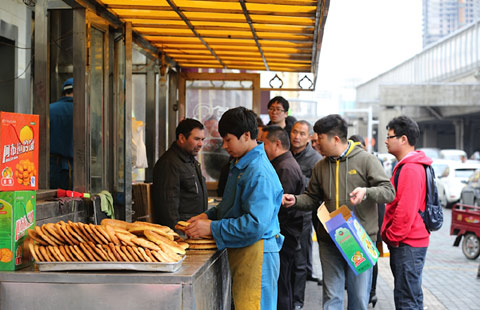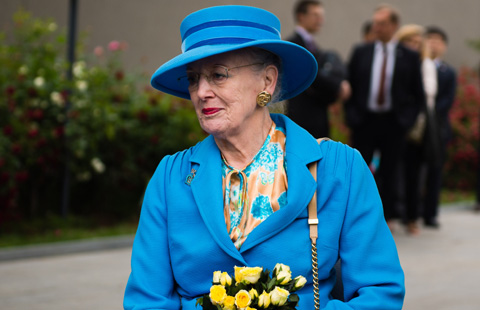Backgrounder: Most influential figures in Iraq's politics
Updated: 2014-04-30 16:19
(Xinhua)
|
|||||||||||
Deputy Prime Minister Salih al-Mutlak
Al-Mutlak was born in Fallujah of Iraq's western Anbar province in 1947. He was an active member of the Ba'ath Party, but was expelled in 1977 after criticizing the government. He was one of the three deputy prime ministers of Iraq since 2010.
Al-Mutlak leads the Al-Arabiya Coalition to participate in this year's elections. The Arab nationalist bloc's supporters are from Sunni-majority areas, but its influence declines in Anbar where many people think al-Mutlak is close to the prime minister.
Kurdish Regional President Masoud Barzani
Born in Mahabad, Iran, in 1946, Barzani is a leading Kurdish statesman. He succeeded his father, prominent Kurdish nationalist leader Mustafa Barzani, as the head of the Kurdistan Democratic Party in 1979. He has been president of the autonomous Kurdish region in Iraq since 2005.
As leader of the largest Kurdish political party, Barzani is expected to be a highly influential player in Iraq's post-election politics.
Former Prime Minister Ayad Allawi
Allawi was born in Iraq's capital city of Baghdad in 1945. A prominent Iraqi political activist who lived in exile for almost 30 years, the secular Shiite Muslim came back to Iraq following the US-led invasion in 2003. He was prime minister of Iraq's interim government from June 2004 to April 2005.
The Iraqiya List, a cross-sectarian alliance led by Allawi, came first in the 2010 elections but failed to form a government. With the breakdown of the Iraqiya List, Allawi leads a much smaller National Coalition to participate in this year's elections.
Muqtada al-Sadr
Al-Sadr is a prominent Shiite political leader in Iraq and head of the Islamist populist Sadrist Movement. He was born in Najaf, south Iraq, in 1974. After the fall of the Saddam government in 2003, Sadr came out as an anti-US political leader whose military wing Mehdi Army used to engage in violent conflicts with the US and other coalition forces.
In February 2014, al-Sadr suddenly announced that he has withdrawn from politics and closed his political offices. But the Ahrar Coalition, mostly consisting of followers of the Sadrist Movement, continues to run in the elections.
Former Prime Minister Ibrahim al-Jaafari
Al-Jaafari was born in Karbala, south Iraq, in 1947. He became an active member of the Islamic Dawa Party before he fled the country in 1980 to take refuge in Iran and Britain. He came back to Iraq as a leader of the party after the US-led invasion in 2003. He was prime minister in Iraq's Transitional Government from May 2005 to April 2006.
In 2008 al-Jaafari launched a Shiite-Islamic-based party called the National Reform Movement and was expelled from the Islamic Dawa Party. He leads the National Reform Alliance to participate in this year's elections.
Today's Top News
Russia's FM scolds West for imposing sanctions
Obama's trip not to achieve goals
Media mogul interested in Clippers
Director enjoys overseas success
Philippine pact gives US access to air, sea bases
Hunt resumes for bodies inside ferry
Ukrainian mayor wounded by gunfire
Alibaba IPO: Could be the biggest ever
Hot Topics
Lunar probe , China growth forecasts, Emission rules get tougher, China seen through 'colored lens', International board,
Editor's Picks

|

|

|

|

|

|





